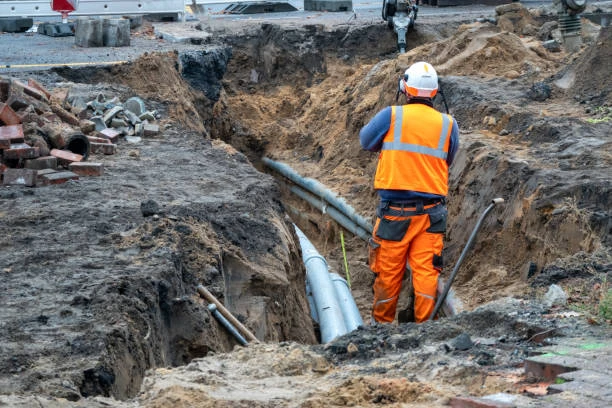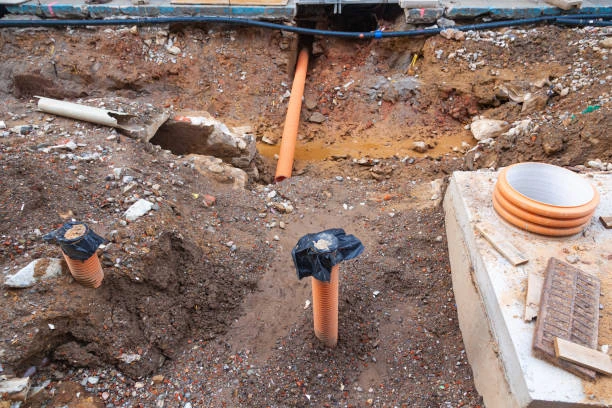In a significant legal development, several major PVC pipe makers have been accused of price-fixing in a lawsuit filed by a contractor. This allegation raises serious questions about market practices and competition within the PVC pipe industry. The implications of such accusations can be far-reaching, impacting contractors, consumers, and the overall market landscape. This article explores the details of the lawsuit, the ramifications for the industry, and the broader context of price-fixing allegations in manufacturing.
Understanding the Allegations
Overview of the Lawsuit
The lawsuit, initiated by a contractor, alleges that major PVC pipe manufacturers colluded to fix prices, thereby inflating costs across the market. According to the claims, these companies engaged in secretive practices that manipulated pricing structures, harming contractors and consumers alike. This lawsuit has garnered attention due to the significant financial implications it holds for the involved parties.
What Is Price-Fixing?
Price-fixing occurs when competing companies agree, explicitly or implicitly, to set prices at a certain level. This practice is illegal under antitrust laws, as it restricts competition and can lead to higher prices for consumers. In the PVC pipe industry, price-fixing can have severe consequences, as contractors often rely on stable pricing to estimate project costs accurately.
The Impact on Contractors
Increased Costs for Contractors
If the allegations are proven true, contractors who rely on PVC pipes may face significant financial repercussions. Price-fixing can lead to inflated costs, making it challenging for contractors to bid competitively on projects. This situation can deter small businesses from participating in larger contracts, thereby limiting market competition.
Trust and Relationships
The lawsuit also raises concerns about trust between contractors and manufacturers. If major PVC pipe makers are found guilty of collusion, it may damage long-standing relationships within the industry. Contractors may become wary of relying on these manufacturers for their material needs, leading to a shift in purchasing behavior.
Implications for Consumers
Higher Prices
Ultimately, consumers may bear the brunt of price-fixing schemes. If manufacturers inflate prices, the cost is likely passed down the supply chain, leading to higher prices for consumers. This situation could affect homebuyers and property owners who depend on affordable plumbing solutions.
Decreased Product Availability
Price-fixing can also lead to decreased product availability in the market. If manufacturers prioritize profit over competition, they may limit their product lines or reduce investment in innovation. This reduction can stifle advancements in PVC pipe technology, leaving consumers with fewer options.

The Legal and Regulatory Landscape
Antitrust Laws and Regulations
The accusations against major PVC pipe makers fall under antitrust laws designed to protect competition. The Federal Trade Commission (FTC) and the Department of Justice (DOJ) investigate such practices to ensure a fair marketplace. If found guilty, the manufacturers may face hefty fines and legal consequences, including potential changes to their business practices.
Previous Cases in the Industry
Price-fixing allegations are not new to the manufacturing sector. Similar lawsuits have occurred in other industries, leading to significant penalties for the companies involved. The outcomes of these cases often result in stricter regulations and increased scrutiny of market practices, shaping the competitive landscape.
The Response from Major PVC Pipe Makers
Denial of Wrongdoing
In response to the lawsuit, several major PVC pipe makers have publicly denied any wrongdoing. They assert that their pricing strategies are based on legitimate market factors, such as supply chain costs and demand fluctuations. This defense is typical in legal battles involving antitrust allegations.
Potential Impact on Market Reputation
Despite their denials, the allegations may tarnish the reputations of these manufacturers. Even without a legal finding of wrongdoing, the public perception of price-fixing can affect brand loyalty. Contractors and consumers may begin to explore alternatives, impacting the market share of the accused companies.
Looking Ahead: Industry Repercussions
Changes in Market Dynamics
The outcome of the lawsuit could lead to significant changes in the PVC pipe market. If the allegations are upheld, manufacturers may need to restructure their pricing strategies and practices. This restructuring could foster a more competitive environment, ultimately benefiting contractors and consumers.
Increased Regulatory Oversight
Following this lawsuit, regulatory bodies may increase scrutiny of pricing practices within the industry. Companies may be subject to more frequent audits and inspections to ensure compliance with antitrust laws. This heightened oversight could deter future collusion and promote fair competition.
Conclusion
The lawsuit against major PVC pipe makers for alleged price-fixing has raised critical questions about the integrity of the industry. As contractors and consumers await the outcome, the potential implications of these allegations cannot be understated. Whether the manufacturers are found guilty or not, this case may lead to significant changes in market practices and perceptions, shaping the future of the PVC pipe industry.
FAQ
1. What is price-fixing?
Price-fixing occurs when competing companies agree to set prices at a certain level, which is illegal under antitrust laws.
2. How does price-fixing affect contractors?
Price-fixing can lead to inflated costs for contractors, making it difficult for them to bid competitively on projects.
3. What are the potential consequences for the accused manufacturers?
If found guilty, manufacturers may face hefty fines, legal consequences, and changes to their business practices.
4. How can consumers be impacted by price-fixing?
Consumers may experience higher prices and decreased product availability as costs are passed down the supply chain.
5. What might happen next in this lawsuit?
The lawsuit could lead to changes in market dynamics, increased regulatory oversight, and potentially more competitive pricing in the PVC pipe industry.

















